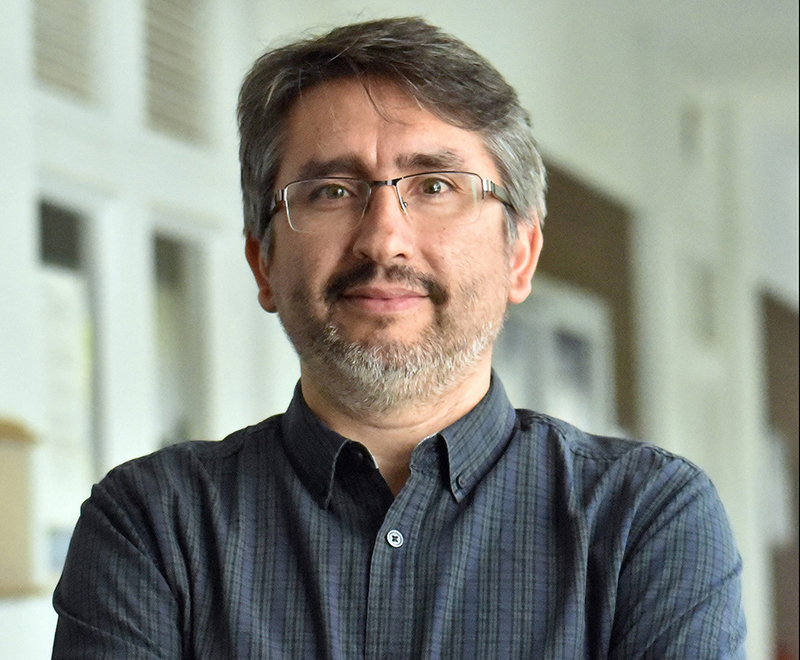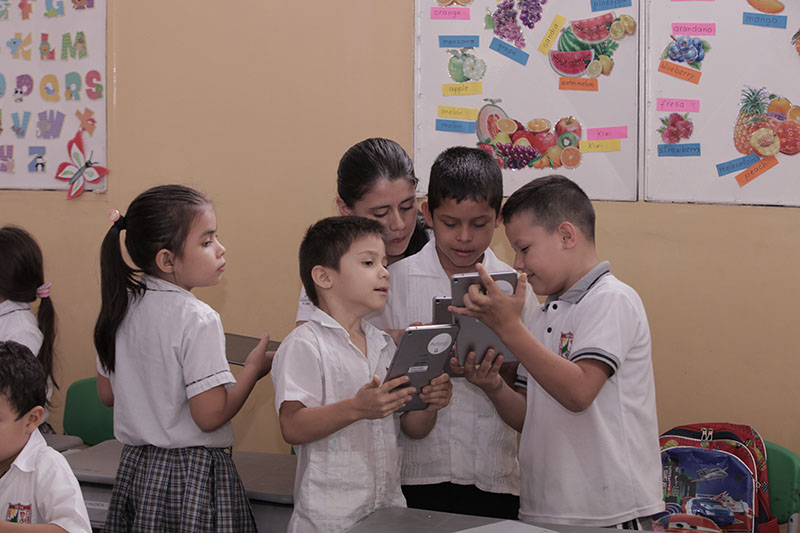Project-based learning, educational gamification, the flipped classroom… in a world in which traditional education, conceived in the late 19th century, is undergoing a sweeping review, educational innovations are arriving and searching for a place. However, how do we know whether the method works or whether it’s the product of an enlightened mind without any scientific backing to endorse it? If no parents would think of applying a medical treatment that hasn’t passed rigorous tests or the inspections of all the governmental and international bodies and agencies to their children, why isn’t the same required when we refer to educational practices?
“Teaching isn’t currently a research-based profession”. Leading British educator and psychologist David Hargreaves made this categorical declaration in 1996 at the beginning of his famous talk titled Teaching as a Research-Based Profession: Possibilities and Prospects. In his talk, Hargreaves advocated the idea of transforming teaching by turning teachers into professionals capable of making informed decisions based on scientific evidence.
In this article we’ll explore the concept of Evidence-Based Education and how it stemmed from Evidence-Based Medicine. We’ll also examine the difficulties that come into play in its implementation and the measures that can be taken to promote its effective use in the classroom and the educational environment in general.
If no parent would ever think of applying any medical treatment to their children that has not been rigorously tested or passed the control of all governmental and international bodies and agencies, why is the same not demanded when it comes to educational practices?
What is it?

Image credit: janoon028 for Freepik.
Evidence-Based Education (EBE) is a pedagogical approach that seeks to improve the quality of the teaching and learning process by means of the application of principles and practices endorsed by scientific research.
Its roots can be found in Evidence-Based Medicine (EBM), a revolutionary approach that emerged in the 1990s in response to the need to base medical decisions on solid scientific research, rather than relying solely on clinical experience and traditions. Doctors began to critically examine and appraise the evidence that was available to determine the treatments that were most effective for their patients.
The successful application of EBM in the field of medicine inspired educators and experts in education to take a similar approach during their teaching practice. The aim was to use the most thorough and updated educational research to improve teaching and learning processes in classrooms and other educational settings.
However, as some authors (Trujillo, 2019 and Hederich, Martínez and Rincón, 2014) maintain, the analogies between the two disciplines must be analysed with caution, as there are substantial differences that affect the definition, objectives and features of the concepts. We list some of the most important ones below:
- Cumulative nature of the research. Research tends to be cumulative in medicine, while in education it doesn’t focus on creating a body of knowledge that can be systematically tested, extended or replaced.
- The researchers’ identities. In medicine, the applied research is conducted by both scientific experts and medical professionals working in hospitals. Conversely, in education the research is usually conducted by expert academics without any experience in teaching in school contexts.
- Media: Medicine can boast important scientific journals to publicise its breakthroughs (approximately 25,000), while education still needs greater development to provide access to the results of the research.
- Nature of the evidence: The evidence in medicine is clear, accurate, objective and incontrovertible, while in education it’s frequently unstable, imprecise and subjective in nature, making it difficult to consolidate any evidence on the effectiveness of educational practices.
- The attitude towards evidence-based research: Doctors search for and develop evidence-based research, while teachers still don’t perceive the lack of research as a problem to be remedied, leading to slow and limited production of educational knowledge.
Evidence-Based Education (EBE) is a pedagogical approach that seeks to improve the quality of the teaching and learning process through the application of principles and practices supported by scientific research.
How are educational research and practice related?
The interaction between educational research and practice is essential for informing and improving educational policies, strategies and methodologies to ensure that the pedagogical approaches are effective and suited to the students’ needs. How does this interaction occur in practice?
By summarising the ideas of different authors, Murillo Torrecilla (2011) identified five models:
- Direct relationship. Teachers and administrators read research reports and apply the results to their practice, generating a process of change. However, it’s acknowledged that this route is ineffective due to a lack of time and training and the teachers’ attitude to accessing research.
- Research reviews. Research reviews, also known as “What Works”, act as mediators between the original research and the teachers. These reviews make the knowledge built up by the research more accessible and faster for education professionals.
- Teacher training. The results of the research are put into practice by means of initial and ongoing teacher training. Teacher trainers play a fundamental role as mediators between the research and the educational practice.
- Policy route. It’s suggested that research can have an influence on political decision-making and an impact on teaching practice. However, it’s recognised that in many cases the political decision-makers use research in a biased manner to justify decisions that have previously been reached.
- Long route, society as a mediator: Over time, research creates a “culture” within society that’s subsequently assumed by politicians, administrators and teachers. In this approach, society as a whole becomes the main user of the research.
How can we encourage the use of educational evidence in teaching practice?
Despite the potential benefits of Evidence-Based Education, its implementation may come up against several challenges and difficulties:
- Access to the research: Not all educators have easy access to scientific journals and other sources of educational research. The cost and the barriers to obtaining scientific information can make it difficult for teachers to gain access to the most updated evidence.
- Limited time and resources: Searching for, reading, and understanding educational research can be a laborious process that requires time and resources. Many educators have overwhelming workloads, hindering their capacity to devote time to researching and applying the best evidence-based practices.
- Lack of training: Some educators may have little experience reading and interpreting educational research. A lack of training in this area may hinder the effective implementation of evidence-based approaches.
- Resistance to change: The adoption of new educational practices may come up against resistance from some educators, especially those who are entrenched in traditional approaches and those who find their current methods successful.
Given the challenges, how can we encourage their use and promote their effective integration into current educational practices?
- Research into education. Investment in quality educational research is critical when it comes to increasing the body of knowledge that’s available. Governments and organisations must allocate resources in order to research the effectiveness of different pedagogical approaches and learning strategies.
- Access to resources: Facilitating access to scientific journals, educational databases and research summaries can help educators to rapidly find the relevant updated information that they need. The Education Endowment Foundation in the United Kingdom, SummaEduin Latin America and What Works Clearinghouse in the USA are some examples of the above.
- Collaboration between professionals: Promoting collaboration between educators and other professionals in the educational field, such as educational psychologists, ICT specialists and child development experts, can enrich the evidence-based pedagogical approach and address the students’ different needs.
- Communities of practice: Encouraging the creation of communities of practice can help educators to pool experiences, discuss evidence-based practices and support each other as they implement new approaches.
- Training and career development: Providing educators with training and career development in the use of EBE can help them to develop skills enabling them to access and evaluate educational research and apply it in their classrooms.
- Dissemination and awareness: Sensitising educators, students, parents and the community in general with regard to the importance of Evidence-Based Education can generate a cultural change in the way teaching and learning are approached.
- Classroom research: Encouraging educators to conduct research in their classrooms can generate local evidence to endorse the effectiveness of certain practices. These studies can help to further customise educational strategies to suit the specific needs of students in a particular community or context.
Providing access to scientific journals, educational databases and research abstracts can help educators quickly find the relevant and up-to-date information they need.
In recent decades, educational systems have undergone accelerated transformations that have led us to rethink the purpose of education and its implementation in schools. Schools can no longer remain disconnected from social and cultural realities in an omnipresent digital world. Similarly, the teacher’s work can’t be a “black box” of actions without a clear impact.
Using the analogy with medicine once again, if even the most minimal medical failure rates require an exhaustive review of the working methods of the health system, how can we not be alarmed by school failure figures that exceed 20% in many Latin American countries? Only a scientifically proven and substantiated approach can provide the rigour required to understand what works, what’s successful and which practices are inefficient.
Progress towards a significant improvement in educational quality entails the implementation of all the recommendations and indications presented in this article. We have to advocate an approach that promotes progress in education and the quality of teaching to drive the development of our educational systems.
References
Trujillo, F. 2019. Evidence-based education: lights and shadows of a challenge facing schools, research and educational policy. Fernando Trujillo’s blog.
Hederich, C., Martínez, J. and Rincón, L. 2014. Towards evidence-based education. Revista Colombiana de Educación. Issue 66. Bogotá.
Murillo Torrecilla, F.J. 2011. Making education a field based on scientific evidence. Revista Iberoamericana sobre Calidad, Eficacia y Cambio en Educación (2011) – Volume 9, Issue 3






